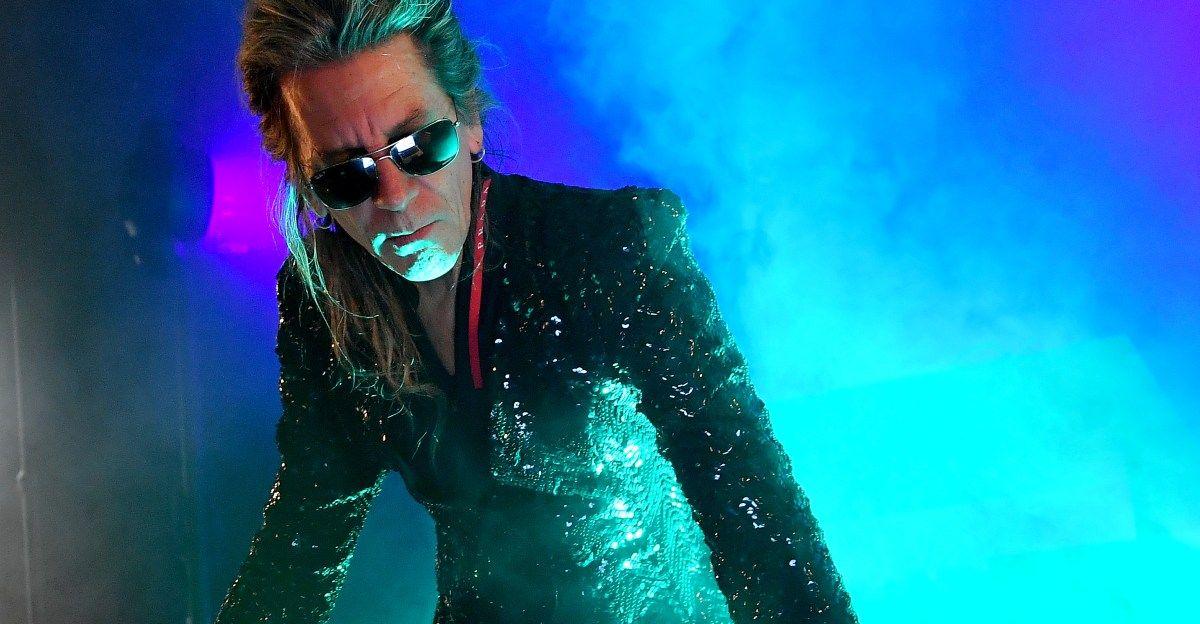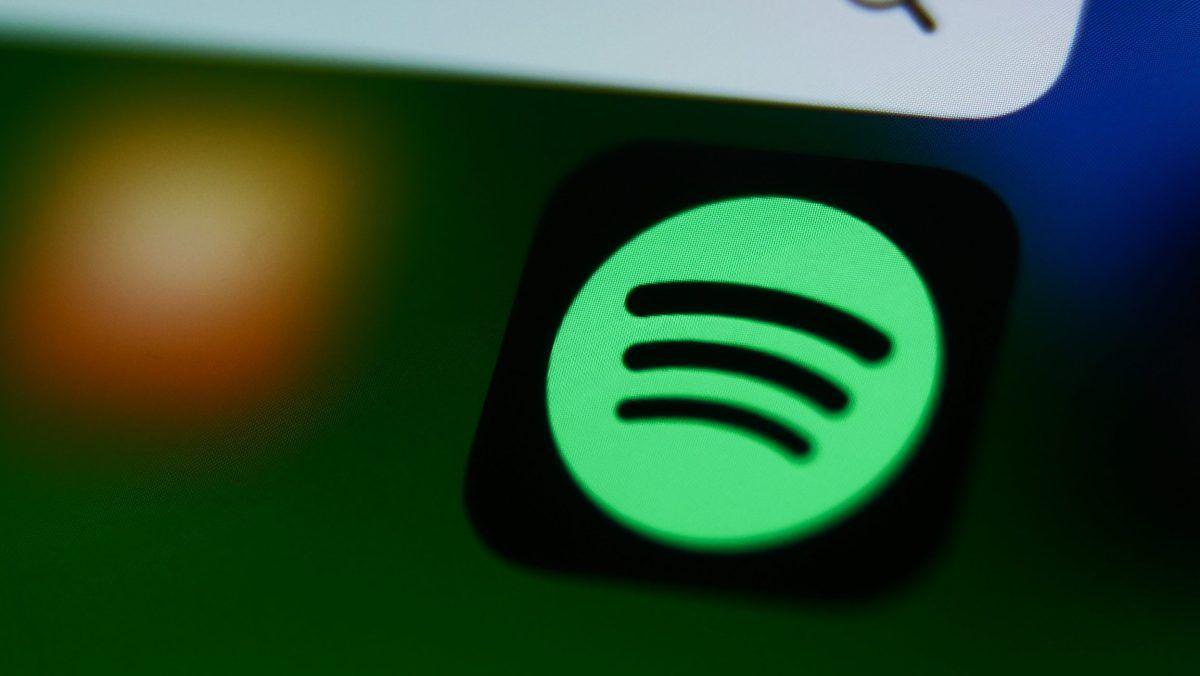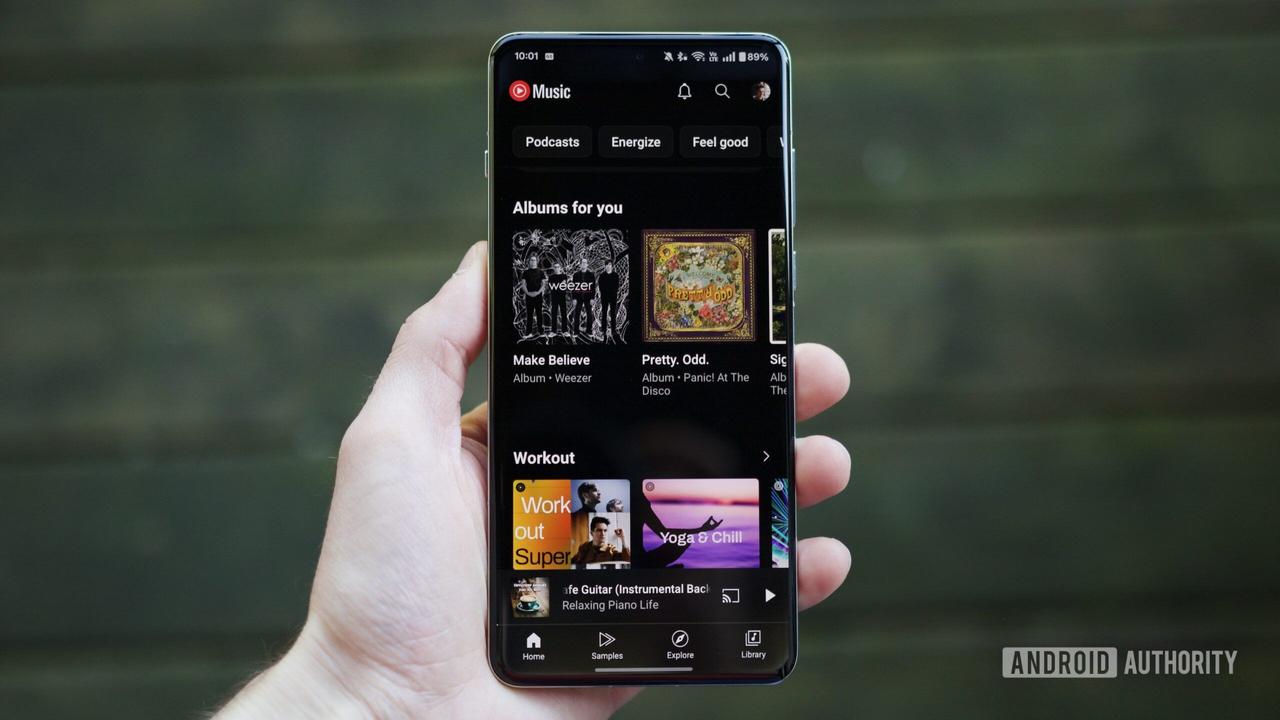Spotify's AI Military Investment Sparks Artist Exodus and Ethical Debate
2 Sources
2 Sources
[1]
Spotify used to seem like a necessary evil for musicians. Now it just seems evil | David Bridie
I am removing my music from Spotify because I don't want my songs - some written with survivors of conflict - to enrich people who fund weapons Being an independent musician comes with plenty of challenges, but it also comes with privileges, and one of them is that you're free to speak your mind. You can live by your beliefs. When necessary, you can kick against the pricks. Today, I am joining a growing number of musicians kicking against one prick in particular. I have decided to remove my music from Spotify. Don't get me wrong. I appreciate the positive side of streaming. It's convenient, like having your own radio station. If you're in a car and you want to hear Beasley Street by John Cooper Clarke - which I often do - it's there for you. This ease of access is a great thing for the listener. And it can be a good thing for the artist too, if, after hearing a song on a streaming platform, the listener then buys the album or pays to see the artist in concert. But it's not so great if streaming is the listener's only engagement. Because that accessibility means fewer people now purchase music via digital download, vinyl or CD - which would be fine, if streaming royalty rates weren't atrocious. Spotify pays artists between $0.003 and $0.005 per stream. For independent artists - especially those from the Pacific and First Nations communities, and artists without the machinery of major labels - this is insulting and completely unsustainable. A royalty model that is not sustainable for artists leads to a situation where only the independently wealthy can create music - an outcome that is neither culturally healthy nor desirable. Of course, that's assuming the independently wealthy musicians are able to fight off the AI-generated music currently crowding onto the streaming platforms. Don't think this situation has come about because times are hard for everybody. The music industry is making as much revenue as it did at its 1990s peak, but little of that money is making it through to those who play the instruments or sing the tunes. As musicians, we have been left with little choice but to hold out our begging bowls and tell ourselves that something is better than nothing. But leaving Spotify is about more than the money. Spotify CEO Daniel Ek recently lead a €600m ($1.07bn) investment in a German defence company called Helsing, which specialises in AI-driven autonomous weapon systems, through his investment firm Prima Materia. Ek is also the chairman of Helsing, having joined the board in 2021 when his investment fund Prima Materia put €100m into the then-startup. Ek isn't paid a salary by Spotify - he takes a share of its stock, last year alone cashing out a reported $345m. So here we are, artists helping to build algorithms to sell our music - and the success of that algorithm determines the flow of wealth to a man who invests in building machines that could kill people. In recent years, we've witnessed the horror of AI drone wars in Ukraine and Gaza - children killed and hospitals destroyed with the press of the space bar. Ek is investing in technology that can cause suffering and death. Spotify used to seem like a necessary evil. By association, it now just seems evil. So I have decided to remove my music from the platform. Many other artists have done the same thing. The removal of my works won't make any significant dent in the company's profits. It won't change my earnings much either, but I can no longer be complicit. I don't want my songs - some written with survivors of conflict - to enrich a man who helps to fund weapons. And I am urging everyone else to quit Spotify. There are alternatives. These platforms (what a soulless word) are not perfect, but at least they aren't owned by individuals who align themselves with the arms race. If you're an artist, I ask you to think hard about where your music lives. If you're a listener, consider where your money goes. And as a music industry, let's think hard about who we take sponsorship from. We can't keep handing our creativity, our loyalty and our cash to amoral tech giants who see music as content and war as business. I'd rather earn nothing than profit from destruction. As Deerhoof succinctly put it in their statement on leaving Spotify: "If the price of 'discoverability' is letting oligarchs fill the globe with computerised weaponry, we're going to pass on the supposed benefit."
[2]
Spotify Made a Huge Mistake With AI
"We are currently working to take all of our music off of garbage hole violent armageddon portal Spotify." While Spotify users worm their way through a maze of AI-generated slop, the streaming giant's executives are dealing with an exodus of musicians after CEO Daniel Ek was working on a massive investment into an AI military weapons firm. Through his tech investment company, Prima Materia, Ek lead a $690 million funding round into Helsing, a German drone and AI weapons tech company, as reported by the Financial Times. Four years earlier, Ek -- who also holds a position as Chairman of Helsing -- led the German company's initial funding round, worth just under $114 million. Thanks to Ek's substantial backing, Helsing has grown into a firm valued at over $13.5 billion. In just a few short years, the weapons company has produced such freedom enhancers as loitering munitions, weaponized quadcopters, underwater surveillance drones, and autonomous fighter jets. The investment might be welcome news to the rapidly growing European weapons industry, but it went over like a lead balloon with musicians on Spotify, who began leaving the music platform in droves. Many of them took to social media to explain their decision to fans. King Gizzard and the Lizard Wizard, a prolific Australian rock band with over 1.4 million monthly listeners on Spotify, announced the release of a demo collection alongside their departure. "New demos collection out everywhere except Spotify (f**k Spotify)," the band wrote. "You can bootleg if you wanna." They took further aim at the company in an Instagram story. "A PSA to those unaware: Spotify CEO Daniel Ek invests millions in AI military drone technology," the group posted on July 25. "We just removed our music from the platform. Can we put pressure on these Dr. Evil tech bros to do better? Join us on another platform." After King Gizzard's bombshell decision, many fellow artists followed suit. "We are currently working to take all of our music off of garbage hole armageddon portal Spotify," wrote Xiu Xiu, an American experimental rock band. "For all the reasons you already know -- PLEASE CANCEL YOUR SUBSCRIPTION WITH SPOTIFY." San Francisco-based indie-rock group Deerhoof posted an extensive explanation on Instagram, calling on fellow culture workers to "take a stand on the important issues facing humanity." The band took aim at Spotify's extractive business model, the weaponization of Europe, Ek's massive wealth, as well as the billionaire CEO's union-busting efforts. "The current trend of Big Tech oligarchs taking increasing control over human affairs and attention, in which Ek has played a major role, is profoundly anti-democratic," Deerhoof wrote. "We don't want our music killing people. We don't want our success being tied to AI battle tech." Other artists boycotting the platform include folk singer Leah Senior, indie band Dr Sure's Unusual Practice, songwriter Nicholas Allbrook, and the Belgium record company Kalahari Oyster Cult label.
Share
Share
Copy Link
Spotify CEO Daniel Ek's investment in AI military technology through Helsing has led to a significant backlash from musicians, with many removing their music from the platform and calling for boycotts.
Spotify's AI Military Investment Sparks Controversy
Spotify, the popular music streaming platform, is facing a significant backlash from artists and listeners alike due to CEO Daniel Ek's substantial investment in AI military technology. Through his investment firm Prima Materia, Ek has led a €600 million ($1.07 billion) funding round for Helsing, a German defense company specializing in AI-driven autonomous weapon systems
1
.Artists' Exodus and Ethical Concerns

Source: Futurism
The revelation of Ek's involvement with Helsing has prompted numerous musicians to remove their music from Spotify. David Bridie, an independent musician, expressed his decision to leave the platform, stating, "I don't want my songs - some written with survivors of conflict - to enrich a man who helps to fund weapons"
1
.Other prominent artists joining the exodus include:
- King Gizzard and the Lizard Wizard, with over 1.4 million monthly listeners
- Xiu Xiu, an American experimental rock band
- Deerhoof, a San Francisco-based indie-rock group
- Folk singer Leah Senior and indie band Dr Sure's Unusual Practice
2
These artists have taken to social media to explain their decisions and urge fans and fellow musicians to boycott Spotify.
AI's Role in Music and Warfare
The controversy highlights the growing intersection of AI technology in both the music industry and military applications. Helsing, now valued at over $13.5 billion, has developed various AI-powered military technologies, including loitering munitions, weaponized quadcopters, and autonomous fighter jets
2
.Meanwhile, musicians are grappling with the influx of AI-generated content on streaming platforms, which they fear could further diminish their already meager earnings from these services
1
.Related Stories
Financial Implications for Artists
The Spotify controversy has reignited discussions about the financial sustainability of streaming platforms for musicians. Spotify's royalty rates, ranging from $0.003 to $0.005 per stream, are considered "insulting and completely unsustainable" by many independent artists
1
.This situation is particularly challenging for artists from Pacific and First Nations communities, as well as those without major label support. The low royalty model raises concerns about the future of music creation, potentially limiting it to only the independently wealthy.
Broader Implications for the Tech Industry
The Spotify controversy serves as a catalyst for broader discussions about the ethical responsibilities of tech companies and their leaders. It raises questions about the appropriate use of AI technology and the potential consequences of its military applications.
As the debate unfolds, it remains to be seen how Spotify and other tech giants will respond to growing concerns about their business practices and investments. The situation underscores the complex relationship between technology, art, and ethics in the modern digital landscape.
References
Summarized by
Navi
[1]
[2]
Related Stories
King Gizzard & the Lizard Wizard quits Spotify, only to be replaced by AI music clones
08 Dec 2025•Entertainment and Society

Spotify Unveils New AI Policies to Combat Spam and Protect Artists
25 Sept 2025•Technology

Spotify Partners with Major Labels to Develop 'Artist-First' AI Music Products
16 Oct 2025•Technology

Recent Highlights
1
Pentagon threatens Anthropic with Defense Production Act over AI military use restrictions
Policy and Regulation

2
Google Gemini 3.1 Pro doubles reasoning score, beats rivals in key AI benchmarks
Technology

3
Anthropic accuses Chinese AI labs of stealing Claude through 24,000 fake accounts
Policy and Regulation





